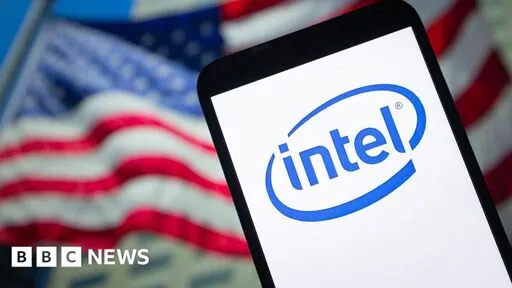Trump’s brand of US capitalism faces ‘socialist’ backlash from conservatives
Trump’s brand of US capitalism faces ‘socialist’ backlash from conservatives

Trump’s brand of US capitalism faces ‘socialist’ backlash from conservatives

The question is, is equity stake from government into private enterprises conservative? Is it wise for the government to own a failing company, which equity, or money, are not the source of the problem to begin with? In other words, trying to prop up a failing company, doesn't seem like a good money decision. There are are many moral implications of doing this.
There are certainly aspects of a planned economy, which I think is a more accurate way of describing it without calling it socialist.
Protectionism and government ownership of strategic economic assets all make sense, and they are certainly not capitalist in nature.
I support these policies, by the way. They seem necessary.
I also wish that the left was more open to the fact that right wing populism should be cooperated with on some fiscal issues, if only in a limited capacity.
Planned economies are not efficient. The problem is using money to prop up a failing company. Why does a failing company get propped up while others who have better products get less help? This is anti-meritocratic, and would be considered corrupt, as we see it in other economies. Intel is not strategic, it is a failing company with inferior products with NVIDIA, and AMD gaining market share. TSMC is a Taiwanese company, not a Chinese company. Taiwan is not a rival, and certainly not a peer competitor. If anything, Taiwan has been instrumental in the US economy, which is why Biden passed economic incentives to onshore TSMC production in Arizona. Capitalism is the survival of the fittest, the prosperity of the best. Propping up Intel is neither strategic nor economically sound. It seems that Trump is responding by his nationalistic impulses than thinking things through.
I think this is all really complicated, though. We have to also consider that most countries practice protectionism and have subsidies and other benefits given to their companies to try to enable them to gain some kind of competitive edge. This is not only because they want to profit from the hard cash inflow of successful industry and major commercial endeavors, but also simply because of the fact that they benefit very much from having greater amounts of their people employed.
One of the ironies about this, too, is how a lot of formerly Communist/Socialist states benefited immensely from their period under a planned economy by having a centralized force bring in the industry and infrastructure necessary to have a superior private market.
I am not saying Capitalism is wrong, per se, I think their descriptions of the free market are generally good... I am just saying that socialism actually also makes a lot of sense for the developing world and for nations that do not have the edge to be competitive internationally.
That's why you see it everywhere and there really is no such thing as a 'free market,' and so designing your economy around a free market is just shooting yourself in the foot.